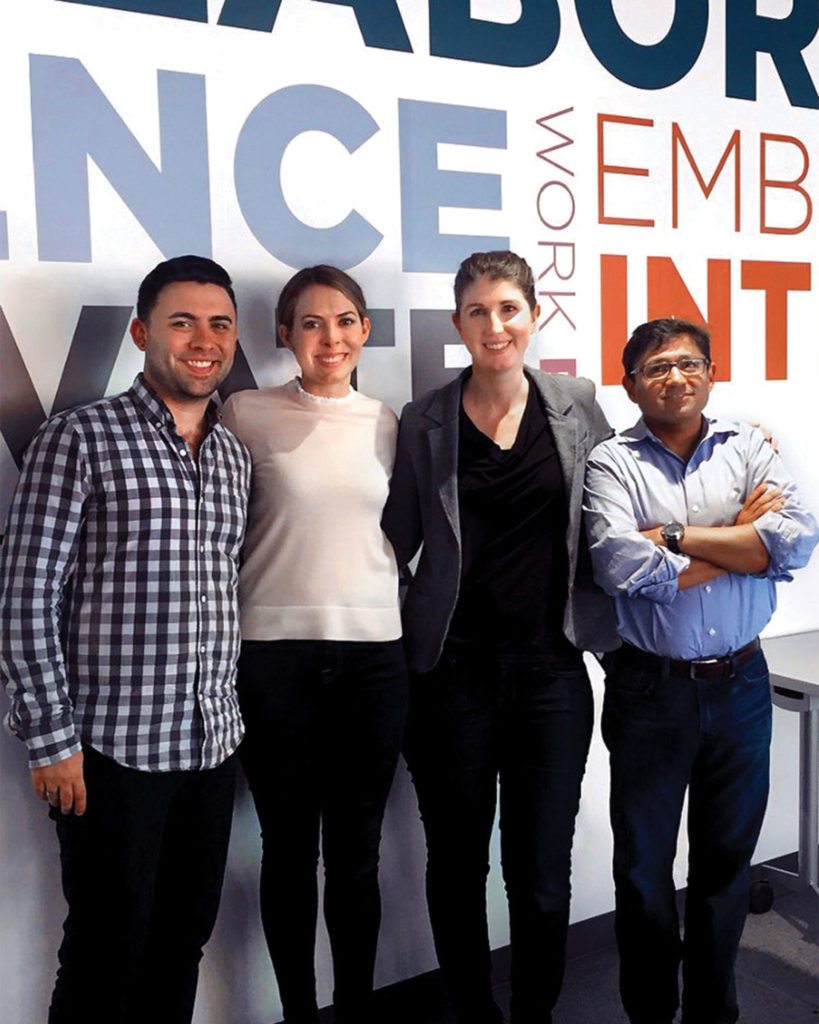Intercept Marketing Team
Cambridge BioMarketing and Intercept Pharmaceuticals
Cambridge BioMarketing:
Serena Faria, Management Supervisor
Courtney Parsons, Senior Account Executive
Christina Boni, Senior Account Executive
Marissa McNally-Costello, Associate Creative Director – Copy
Freddie Garnier, Senior Copywriter
Chris Feifer, Associate Creative Director – Art
Jordan Tavenner, Senior Art Director
Rich Le, UX Architect
Laurie Hergrueter, Editorial Director

Intercept Pharmaceuticals:
Daniel Yip, Executive Director, U.S. Marketing
Salman Mulji, Product Manager
Adam Remiszewski, Associate Product Manager
Drew Cronin-Fine, Associate Director, Marketing
Megan Dolan, Senior Product Manager
 Strengthening the PBC Patient Community
Strengthening the PBC Patient Community
The Intercept Marketing Team—composed of employees from Intercept Pharmaceuticals and Cambridge BioMarketing, an orphan communications firm—helped change the way an orphan community perceives itself and pursues its health for the best possible outcomes.
For years, people with primary biliary cholangitis (PBC) were largely ignored by the medical community. Frequently mistaken for hypochondriacs—or worse, alcoholics—this population lacked the tools and inspiration to advocate for their own health in the medical system. The entry of OCALIVA (obeticholic acid) gave this group of underappreciated patients a new treatment option and supportive tools to help them as they work to manage their disease.
But they needed more than hope. They needed tools. Even more than that, they needed understanding. Enter the Intercept Marketing Team.
Using the patients themselves as inspiration, the Intercept team proceeded to develop tools that truly changed the lives of patients, including an innovative app that allows patients to accurately capture their disease symptoms and plot them along a graph, helping data-focused physicians understand the severity of their conditions. The app has shattered every industry standard, and is currently in regular use by many in the PBC community. In fact, patients and family members spend an average of more than three minutes per use reviewing key disease facts and entering data for later discussion with their HCPs.
The team also developed other innovative tools to help give patients with PBC an authentic voice, whether it was telling a patient’s disease narrative in her own words on LivingWithPBC.com, or a powerful user-generated content tool called PBC Post, which allows patients to send postcards to friends, family, and others to express sentiments and educate around the challenges of their condition.
The Intercept team approached their work with true empathy for the difficult journeys and life challenges of people facing PBC. In the end, preparing the market and strengthening the community not only helped the team accomplish their business goals—it truly made a difference in the lives of people suffering from a rare and progressive disease.




